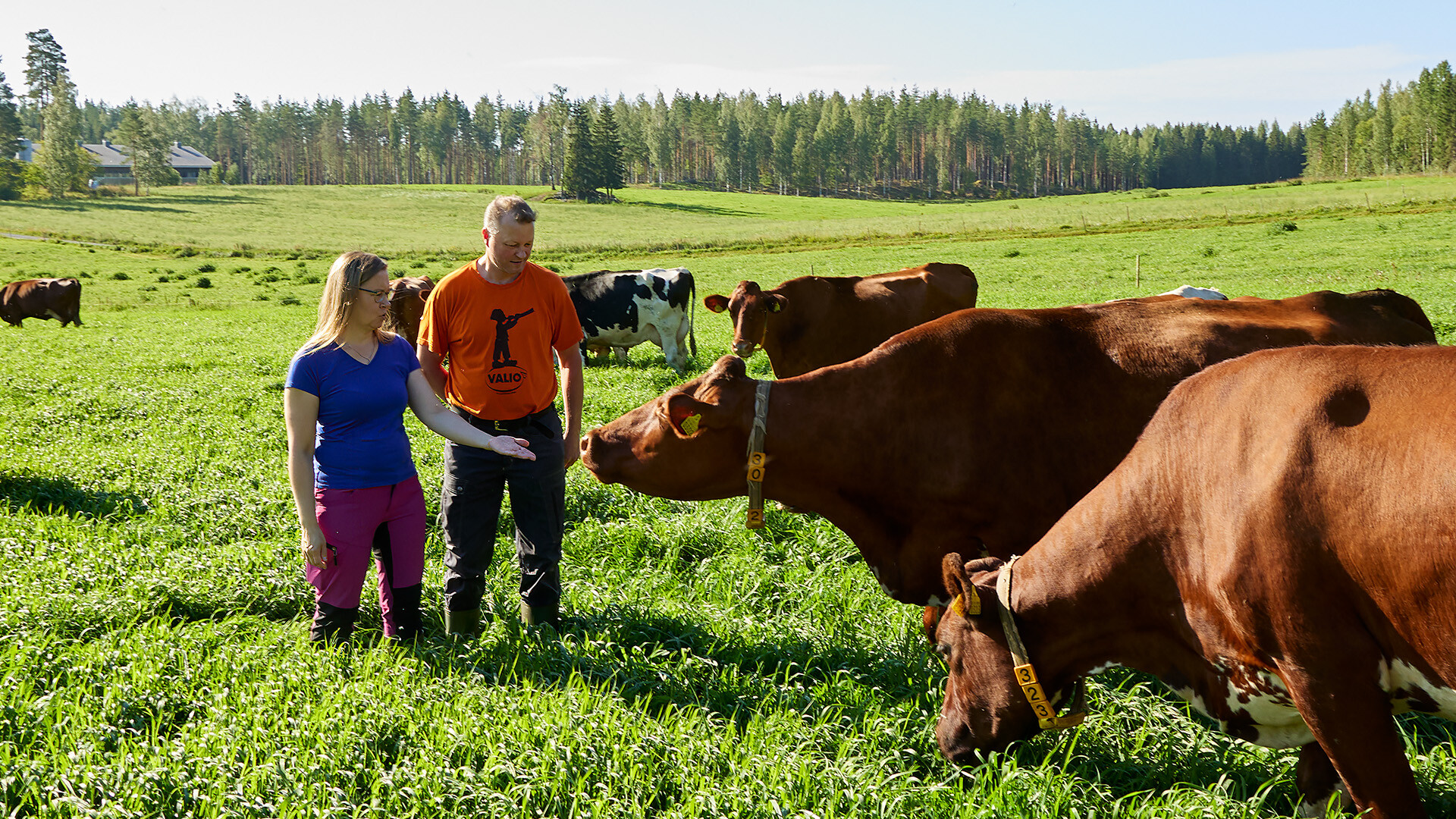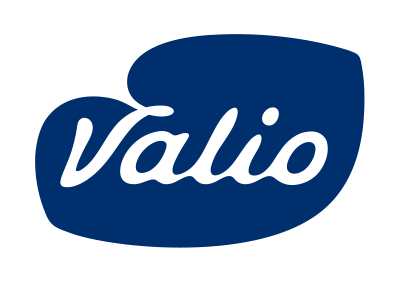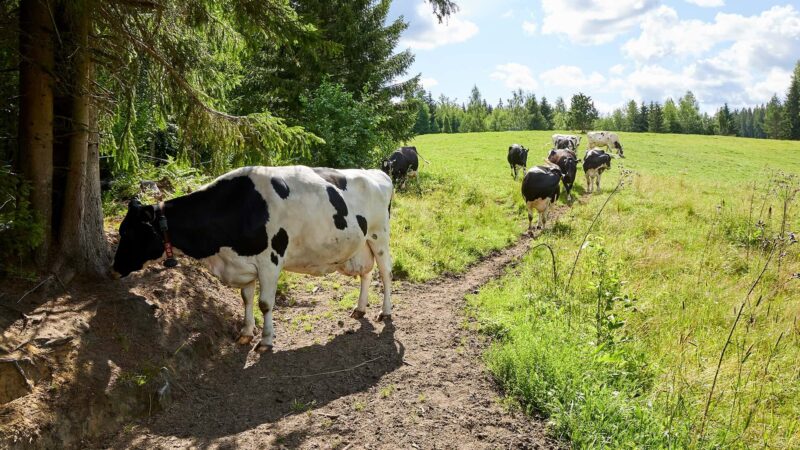Valio Carbo™ partnership programme offers customers solutions for reducing food chain greenhouse gas emissions

Many food companies are looking for solutions to reduce greenhouse gas emissions in their own value chain. Particularly challenging is the reduction of indirect emissions outside their own operations, the so-called scope 3 emissions. Valio’s ambitious goal is to cut the carbon footprint of milk to zero by 2035. Valio’s biggest emission reduction efforts are taking place on Finnish dairy farms, as most of the emissions are generated on farms. At the same time, the emissions of Valio’s partner customers are also being reduced.
Carbon-neutral milk means that emissions are reduced and sequestered from the air by at least the same amount as they are generated on dairy farms, during transport, at factories, in the manufacturing of packaging, and elsewhere along milk’s journey from farm to store. Valio’s climate work focuses on reducing our own emissions, not on offsetting them.
Nearly half of the carbon footprint of milk is methane produced in the digestive process of cows. To reduce methane emissions, Valio has piloted the use of a methane-reducing feed supplement in the feed of around 3,400 cows, and the results have been very positive in terms of both animal nutrition and emission reductions.
“Our customers are very interested in Valio’s climate actions and the ways in which they can reduce their own climate emissions. Particularly challenging for companies are the so-called scope 3 emissions, i.e. the indirect emissions that originate in parts of the value chain over which the company has no direct control. These include, for example, purchases of raw materials by the food industry or emissions from primary production. Indirect emissions are estimated to account for more than 90% of emissions in the food chain, which is why operators in the food industry are looking for ways to meet climate targets in a cost-effective way,” explains Timo Pajari, Senior Vice President, Business Unit Powders from Valio.


